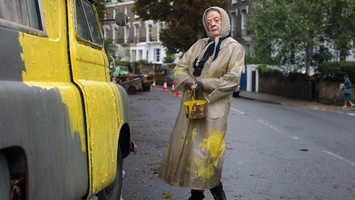
I ended the week with a dialogue between people of religious and non-religious beliefs. This kind of dialogue has become an annual event hosted by the Conforti institute and it's unique in Britain, though many people who describe themselves as being non-religious do come to inerfaith events. Often, because of some public figures, it looks as though those who describe themselves as humanist or secularist are always at loggerheads with religion but it's not always the case and dialogue which is open to everyone often proves this. It's possible for humanists as well as religious people to understand and respect beliefs different from their own and it's probably a sign of insecurity when some people want to do away with religion.
The theme of the dialogue and indeed the whole week was Care for the Environment. Originally it was Care for Creation but this made some Buddhists a bit uneasy as it suggested a Creator God that they couldn't ascribe to though this in itself could have been a good topic for dialogue to determine exactly what theists mean by a Creator God. Caring for the Environment was a good topic as the week ended with the Climate Change conference in Paris. It was an opportunity to reflect on the evils of climate change, the critical situation that our world is in and the need to cut down on carbon emissions. While recognising the need for govenments and business to change their policies, we talked a lot about what we could do as individuals to make ourselves aware of our connection with the world and the damage that we do through our own personal consumerism and greed. We recognised how easy it is to blame others and how important it is to change our mentality towards the world in which we live.
One way of doing this is recognising our interconnectedness with all sentient beings. This is very central to Buddhism but others, such as Pope Francis in his recent encyclical, are encouraging us to become aware of how much we are part of nature and that to damage nature is in fact to do damage to ourselves. Eastern religions teach us that nature is sacred and should be honoured and cared for. Pagans also believe that everything that lives contains a small spark fo the divine which gives them a strong reverence for life so that they see environmentalism as a sacred duty - something that we all now need to take on board. Abrahamic religions tend to stress human beings as guardians and stewards of creation, that human beings have a responsibility to care for the earth, to cultivate and take care of it. Unfortunately this has often been understood as using the earth and its resources for our own purposes and we now know how much we have abused it in doing this. Perhaps this week of interfaith dialogue will help us learn from one another - help us recognise the sacredness of life, our interconnectedness with the whole of nature and that our way of caring for this world will lead us all to see environmentalism as a sacred duty. Would this not be a sign of hope for our world.





 RSS Feed
RSS Feed
